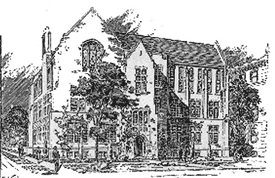At today’s faculty workshop, Robin Slocum, the Boden Visiting Professor Law, gave a fascinating presentation of her latest paper, entitled “The Dilemma of the Vengeful Client: A Prescriptive Framework for Cooling the Flames of Anger” (forthcoming in the Marquette Law Review). Noting that lawyers and the legal system can sometimes become weapons for vengeance in the hands of an angry client, Robin suggested that client counseling can help both the client and the lawyer achieve better outcomes in litigation and avoid the psychological and physiological costs of such vengeance-seeking activity. Effective client counseling, she argued, should focus on uncovering the thoughts and beliefs that underlie anger in order to identify the more rational aims of litigation. In addition, Robin suggested that law schools may consider adopting courses that build lawyers’ emotional competency to engage in this type of counseling.

